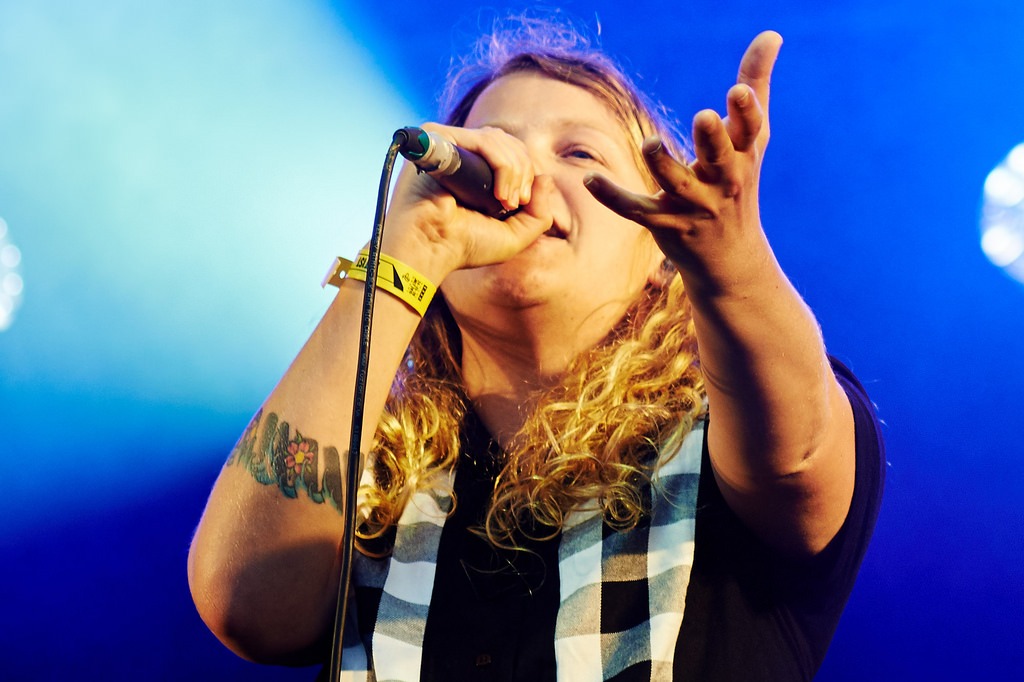Last weekend (1st –2nd October, 2016), BBC Two placed poetry firmly in the spotlight. The poet, Kate Tempest, spoke of the risk taken by the BBC to prioritise poetry and of her gratitude for the chance to fill a prime-time spot. I’m glad she was given the opportunity to show a wider audience how powerful poetry can be.
Poetry is too often obscured by other areas of literature, sitting on just a few shelves surrounded by more mainstream bestsellers. I admit that before beginning my studies I did find poetry intimidating, believing I would struggle to understand the writing. Watching Kate perform has inspired me to explore her work further and to see poetry in a new light.
She performed her new epic new poem Let Them Eat Chaos which was recorded live at the Rivoli ballroom, South London. Kate at only 31 already has an impressive body of work: she was awarded the Ted Hughes award in 2012 and was nominated for the Mercury award for her debut album Everybody Down (2014).
Tempest recited her work with passion and emotion, fully consumed for over an hour by her words. With a mixture of spoken word and rap, visual displays surrounded the stage and music echoed through her performance.
She did not back away from thorny subjects such as politics and pollution, or the struggles of our modern society. Her insights into London were candid, looking beyond the veneer of the tourist spots and high end stores, to the struggling single parents, alcoholism, abuse, and the lonely inhabitants of the city.

But are we ‘a poetry loving-nation’? Another program broadcast over the same weekend examined the connections of the railway and poetry. A documentary first aired in 1936 (including poetry by W. H. Auden) became the inspiration for modern poets to explore this theme once again over eighty years later.
The film then moved forward, focusing on modern passengers much like myself on their own journeys. Poetry can also be a journey as the reader follows the words unravelling the meanings and discovering new places and ideas. ‘The Night Train’ by W. H. Auden (1907-1973) played over the opening title on black and white film, its rhythm echoing a steam engine on the tracks powering over the countryside. The poem describes the journey of a night mail train crossing the border, exploring the mail on board, which range from family letters to everyday bills. Sadly letters are not our first choice of communication any longer, and bills are of course never welcomed.
Five contemporary poets in different regions observed and captured the passengers on their various journeys throughout the country, from London to the Midlands, and beyond. What I quickly discovered is that while we may all share the same journey as we travel together, we all see very different things. While some travel for business, and others for pleasure (to visit a new place or family far from home, perhaps?), everyone has their own lives, struggles, and fears of their own personal history.

Trains seem to stir up memories of childhood and the places we travelled as children — a carefree and happy time full of adventure and excitement. The various poems express these thoughts — exploring all that can be discovered after boarding a train — connecting with a new friend, or enjoying the company of old ones. For myself, rail journeys in the past have meant travelling home to family, or to a holiday somewhere sunny. Now they have become part of my daily commute through Manchester and Bolton, seeing the same passengers every day and their stories that I’ll never know. But through a poet’s words, I am able to gain a small insight into their world.
Cara Bradbury
Cara is a first-year English BA (Hons) student at the University of Bolton.

